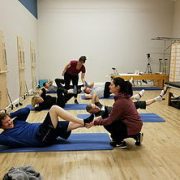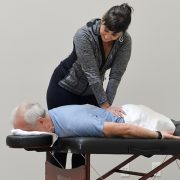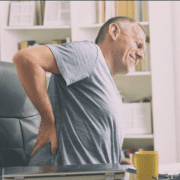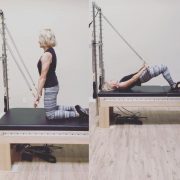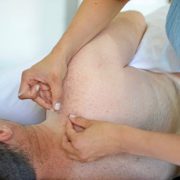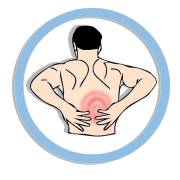3 Reasons You’re at Risk of a Herniated Disc
A herniated disc can occur in any part of our spine. However, we often see it happening in the lower back.
This condition has also been known as a bulging, protruding, or ruptured disc. 80% of people will experience lower back pain at one point in their life – and for some this may be from a herniated disc.
Anyone can develop a herniated disc, but certain factors may increase that risk.
Here are three reasons you might be at a greater risk of developing a herniated disc:
1. You’re sitting For Long Periods
When we sit for too long, the burden of our weight is placed abnormally on our spine. This can cause damage over time. Before long, those small loads add up to real pain. It makes sense when you consider that our bodies were designed to stand, sit, crawl, run, kneel, bend and move through the world in many different ways. It was never designed to sit in one position for prolonged periods, day after day. Sit too long, too often, and it can lead to bulging discs and weak, brittle muscles that are prone to tearing and other damage.
The solution?
Limit your sitting to half-hour periods. Have a few minutes of standing in between, and you’ll reduce the uni-directional forces on your spine. If you sit for a long time at work or at home, stand up and walk around a little bit every thirty minutes. I give this advice to every single client I have who comes to me with back problems. It’s one of the easiest ways for the average person to prevent a debilitating back problem over the long term.
2. You’re bending too much
Did you know that the average person bends or flexes forward between three and five thousand times per day?
That’s a lot of bending over time and eventually something will give – and it tends to be a disc in your lower back. Our spines crave balance, but unfortunately, our modern-day lives are designed to have us bending forward more than we should. Sitting in front of a computer, putting shoes and socks on, driving, house and yard work, even brushing our teeth are all daily activities that involve bending forward in some way.
To combat this, we need to make a concerted effort to extend instead of bend. A really simple exercise you can do every day is to stand and extend your spine. Place your hands on your lower back for support and then arch back as far as you can go. Repeat this 10 times, at least once per day. If you’ve never arched your back like this before, it may feel stiff or even hurt a little at first. But with a gradual increase in frequency, it will feel less stiff and more natural over the course of a few days.
3. Your Age
Age is one of the most significant risk factors for developing back problems.
As we age, our muscles naturally weaken, including those in our back. This can make it harder for us to support our spine and maintain good posture.
Making sure that you are maintaining a proper nutritional diet is very important. It will aid in avoiding injuries like a herniated disc. When our bodies are supplied with the vitamins and minerals they need – your bones and supportive structures are supported to work at their best.
As we get older, we may become less active, which can lead to unwanted weight gain and weaker muscles. This can cause a strain on our back and increase the chances of having a herniated disc. It is generally recommended to be active for around 150 minutes per week. Staying mobile and strong will delay the wear and tear on our bodies as we age.
The good news is – the majority of herniated discs can be completely resolved without surgery.
Are you local to Portsmouth, NH and looking to get help with your pain NOW? CLICK HERE to request a Free Discovery Session with one of my Specialists. They’ll ask you all about what’s been going on – and figure out if we would be a good fit to help.
Dr. Carrie Jose, Physical Therapist and Pilates expert, owns CJ Physical Therapy & Pilates in Portsmouth and writes for Seacoast Media Group. To request a free copy of her guide to back pain CLICK HERE or to get in touch, email her at [email protected].


